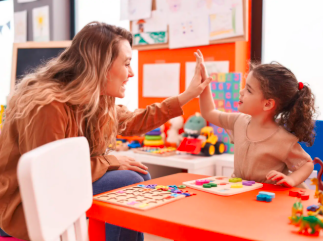Helping young children become confident readers starts long before they open their first book. Early literacy isn’t just about teaching the alphabet; it’s about creating playful, engaging opportunities that nurture language, curiosity, and comprehension. With the right activities, families and educators can set a strong foundation that supports future academic growth.
Why Early Literacy Matters
Early literacy development refers to the skills, knowledge, and attitudes that precede learning to read and write. These skills—such as vocabulary, listening comprehension, and print awareness—are key predictors of later reading success. By introducing simple, age-appropriate activities early on, caregivers can make learning both effective and enjoyable.
Engaging Activities That Promote Reading Readiness
Story Time with Purpose
Reading aloud is one of the most powerful tools for building early literacy. Choose books with repetition, rhyme, or interactive elements. Pause to ask questions about the story or pictures, helping children connect words to meaning.Sing Songs and Recite Rhymes
Nursery rhymes and songs enhance phonological awareness, which is essential for decoding words later. Rhyming helps children recognize sound patterns and improves their ability to hear syllables in words.Alphabet Play
Incorporate letter recognition through puzzles, magnets, or letter hunts around the house. Start with the letters in the child’s name and gradually expand as familiarity grows.Labeling Everyday Items
Place simple labels on common household items—like “door,” “chair,” or “cupboard.” This activity introduces print awareness and shows children that words have meaning and are part of their environment.Drawing and Scribbling
Encourage your child to draw and “write” their own stories. Even scribbles are a step toward writing. Ask them to describe their pictures to develop narrative skills and expressive language.Library Visits
Exploring books at a local library not only builds excitement around reading but also introduces children to a variety of genres and topics. Many libraries also offer free storytime sessions designed to build early literacy skills.Word Games and Vocabulary Building
Play simple word games like “I Spy” using beginning sounds or categories. Talking frequently and using rich vocabulary in everyday conversations strengthens language development naturally.Interactive Reading Apps
When used in moderation, digital tools designed for early learners can support literacy skills through engaging visuals, sounds, and games. Look for age-appropriate, ad-free apps developed by educational experts.
Supporting Children at Their Own Pace
Every child develops differently, and the path to becoming a strong reader is unique for each learner. Patience, encouragement, and consistency are key. Focus on making literacy activities fun rather than forcing performance.
Conclusion
Boosting reading readiness doesn’t require complex lessons or expensive materials. Through playful, daily interactions—singing, talking, reading, and exploring—young children build the foundation they need to thrive as readers. These early literacy activities help foster a love for learning that can last a lifetime.














